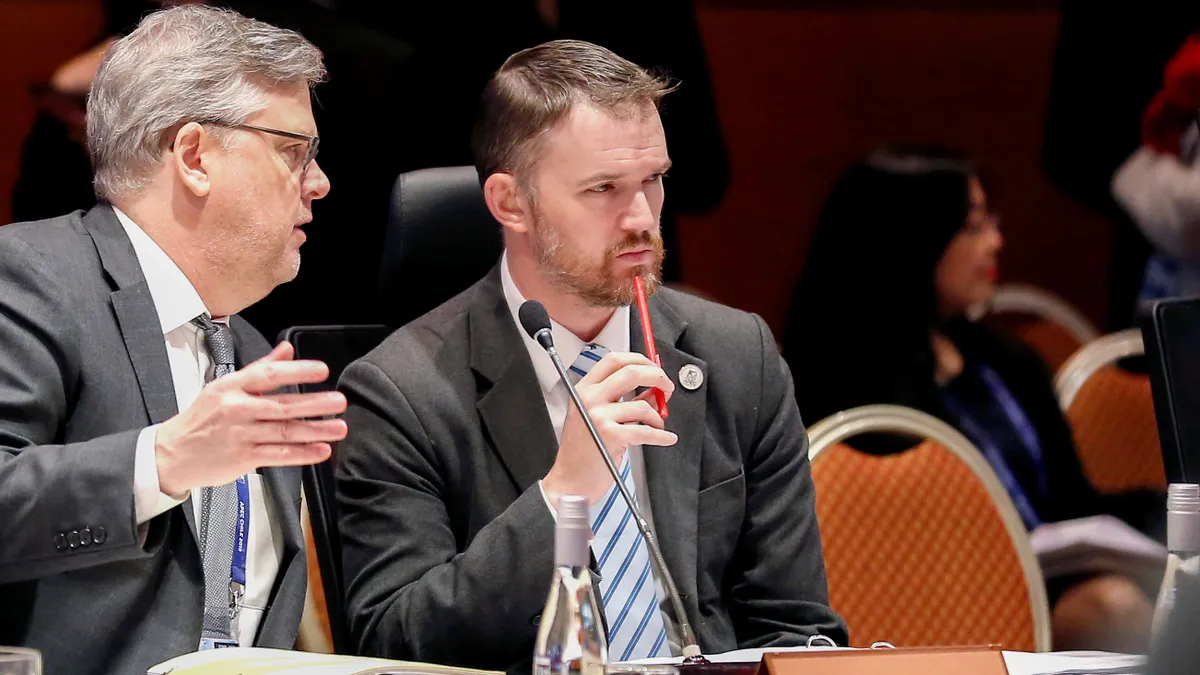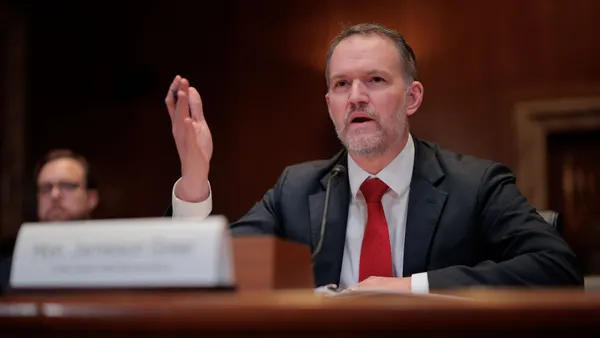Dive Brief:
- Donald Trump nominated international trade lawyer and former White House official Jamieson Greer as the U.S. Trade Representative, the president-elect announced Tuesday.
- Greer, a partner on the international team at the law firm King & Spalding, served as the chief of staff for former USTR Robert Lighthizer during Trump's first term. As chief of staff, he was involved in the United States-Mexico-Canada Agreement negotiations and in trade talks with China.
- The incoming USTR will help lead the administration's trade strategy as it plans to impose aggressive tariffs, including recent promises from Trump for 25% tariffs on imports from Canada and Mexico and additional 10% tariffs on goods from China.
Dive Insight:
The office of the USTR took on heightened importance during Trump’s first term as it helped wage the administration's trade war with China. The president-elect is bringing a similar focus to his incoming administration.
"Jamieson will focus the Office of the U.S. Trade Representative on reining in the Country's massive Trade Deficit, defending American Manufacturing, Agriculture, and Services, and opening up Export Markets everywhere," Trump said in a statement.
Greer may report to Commerce Secretary nominee Howard Lutnick in the new administration if both are confirmed. In his announcement of Lutnick's nomination, Trump noted the secretary would have "direct responsibility for the Office of the United States Trade Representative," though it's unclear what the exact administrative structure will be.
Greer is a staunch supporter of Trump's aggressive trade tactics, calling China's ambitions a "generational challenge" for the U.S. in testimony to the U.S.-China Economic and Security Review Commission in May.
"Trade and investment with China not only have failed to live up to expectations, but they have also actively harmed U.S. economic and national security interests," Greer said.
Greer called for "strategic decoupling" from China and for the U.S. to revoke permanent normal trade relations with the country. He also urged the U.S. to place outbound investment controls on money flowing into China, as well as enhanced export controls and increased tariffs.
"There is no silver bullet, and in some cases the effort to pursue strategic decoupling from China will cause short-term pain," Greer said. "However, the cost of doing nothing or underestimating the threat posed by China is far greater."
Contrary to Trump's comments on federal subsidies, however, Greer in his testimony called for increased incentives similar to those offered in the CHIPS and Science Act and Inflation Reduction Act as ways to spur U.S. industry growth. Greer suggested adding incentives for pharmaceuticals, robotics, aircraft, automotive and other sectors.
Greer will likely play a key role in negotiations regarding the USMCA, which is up for review in 2026. Trump commented during the campaign on his intentions to revisit the deal, saying that he "wants to take advantage now of the car industry.”















